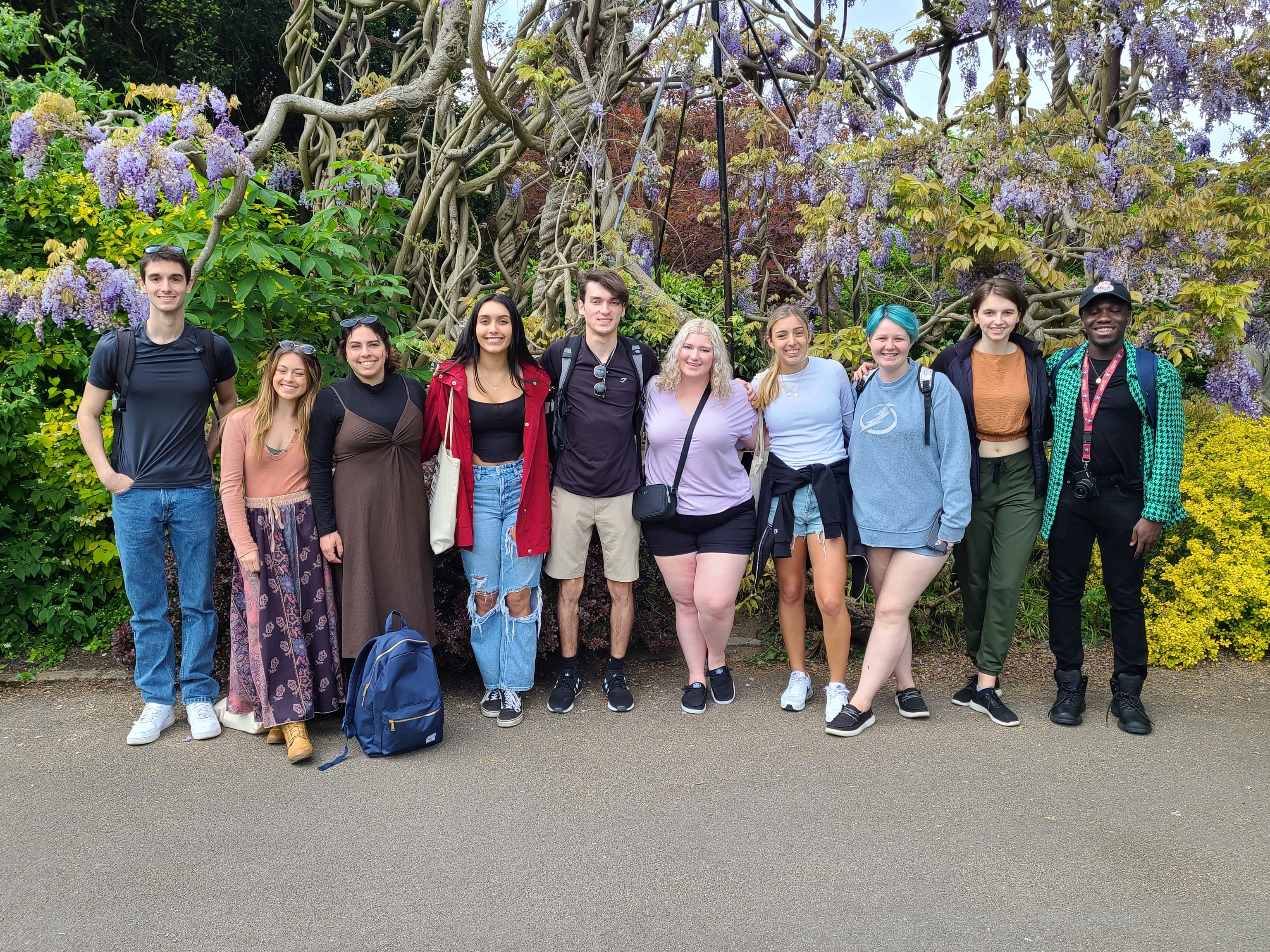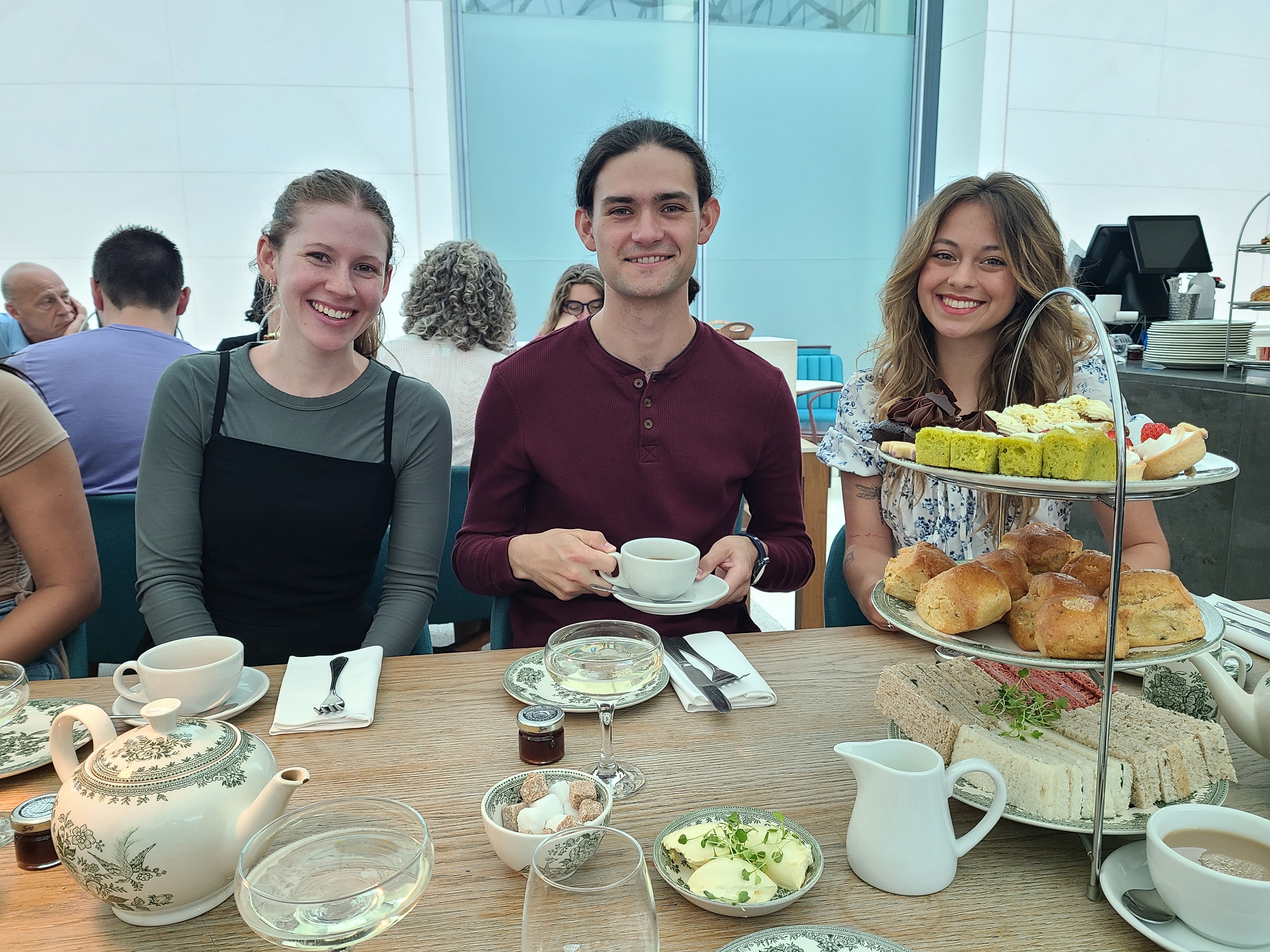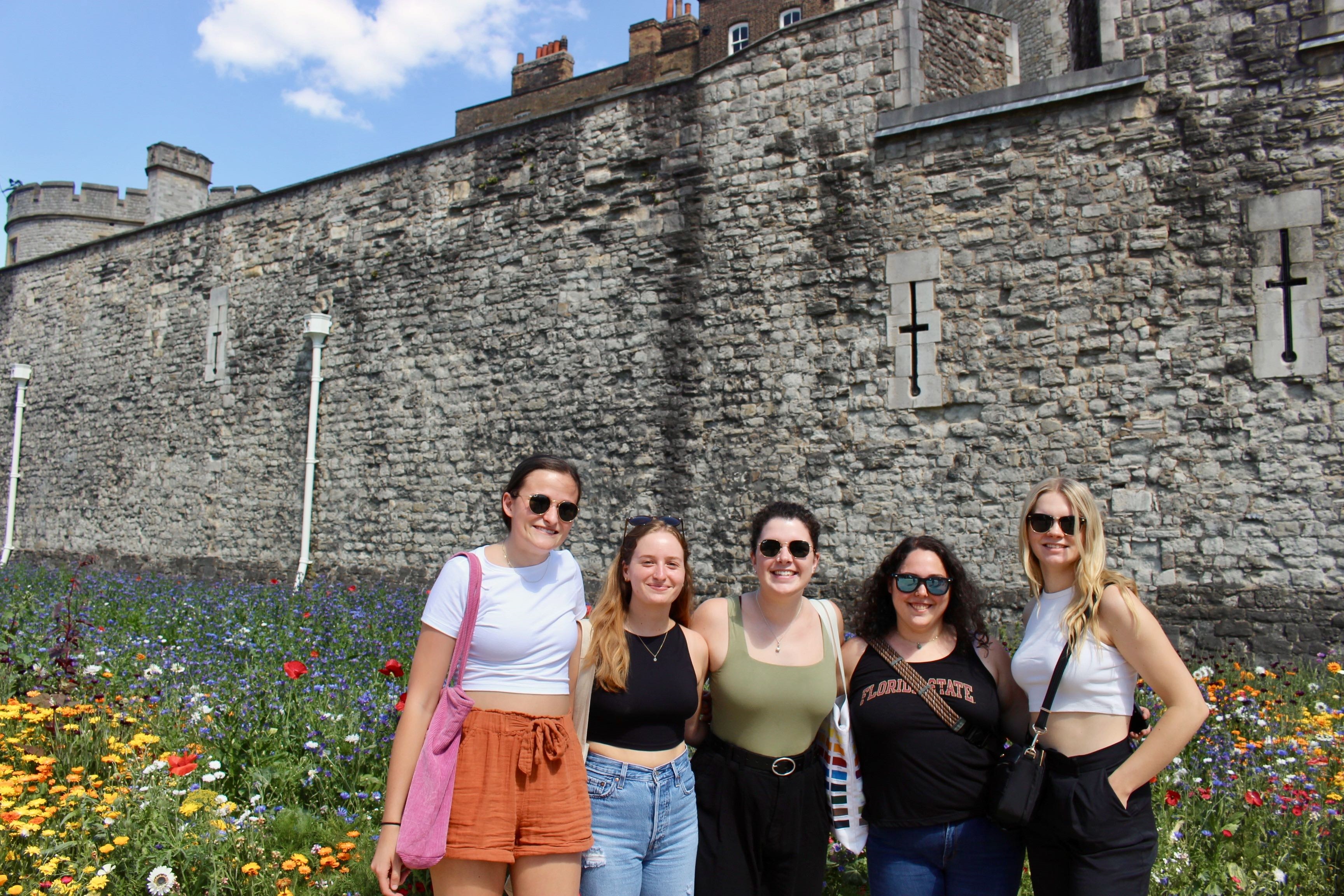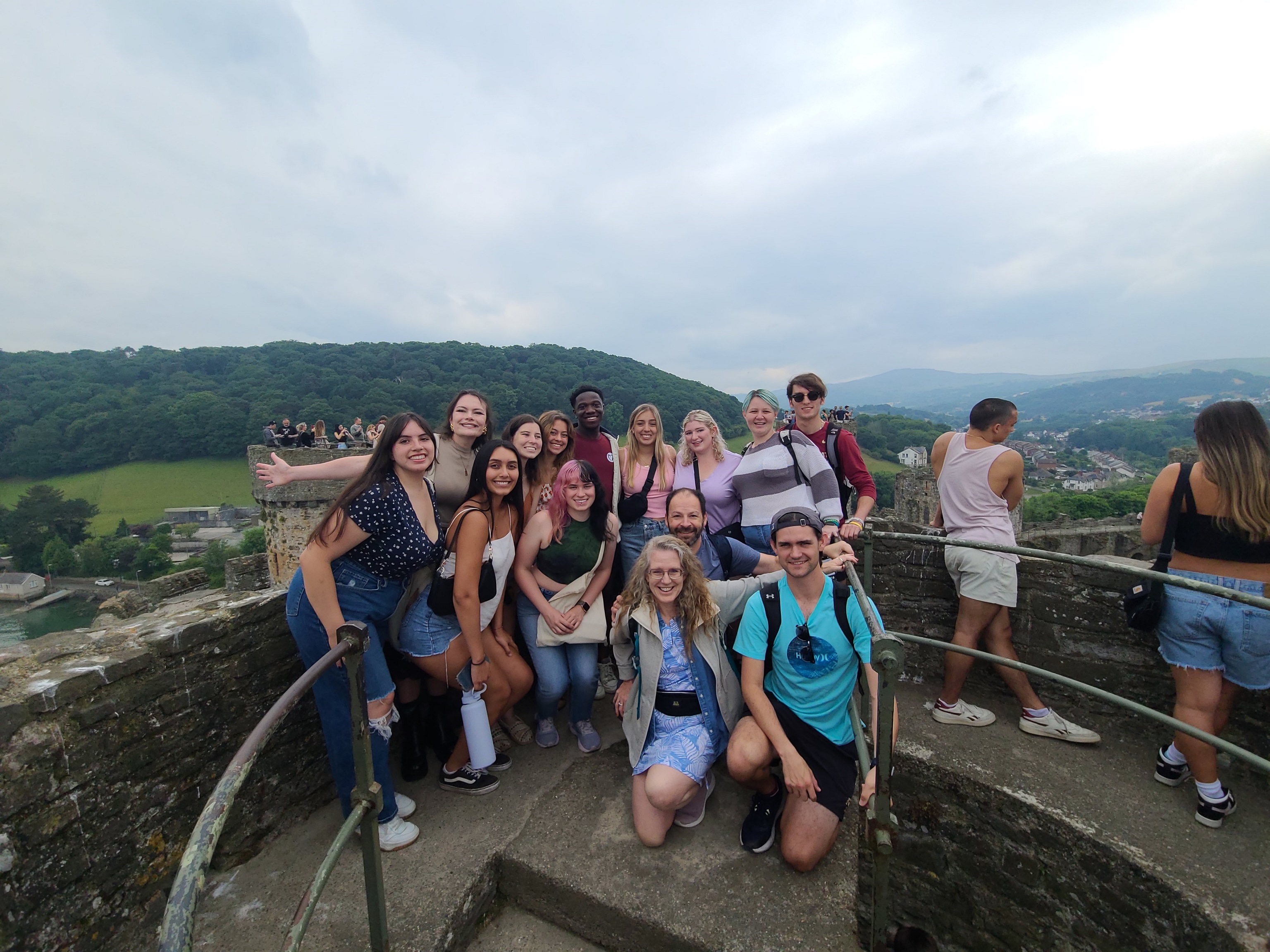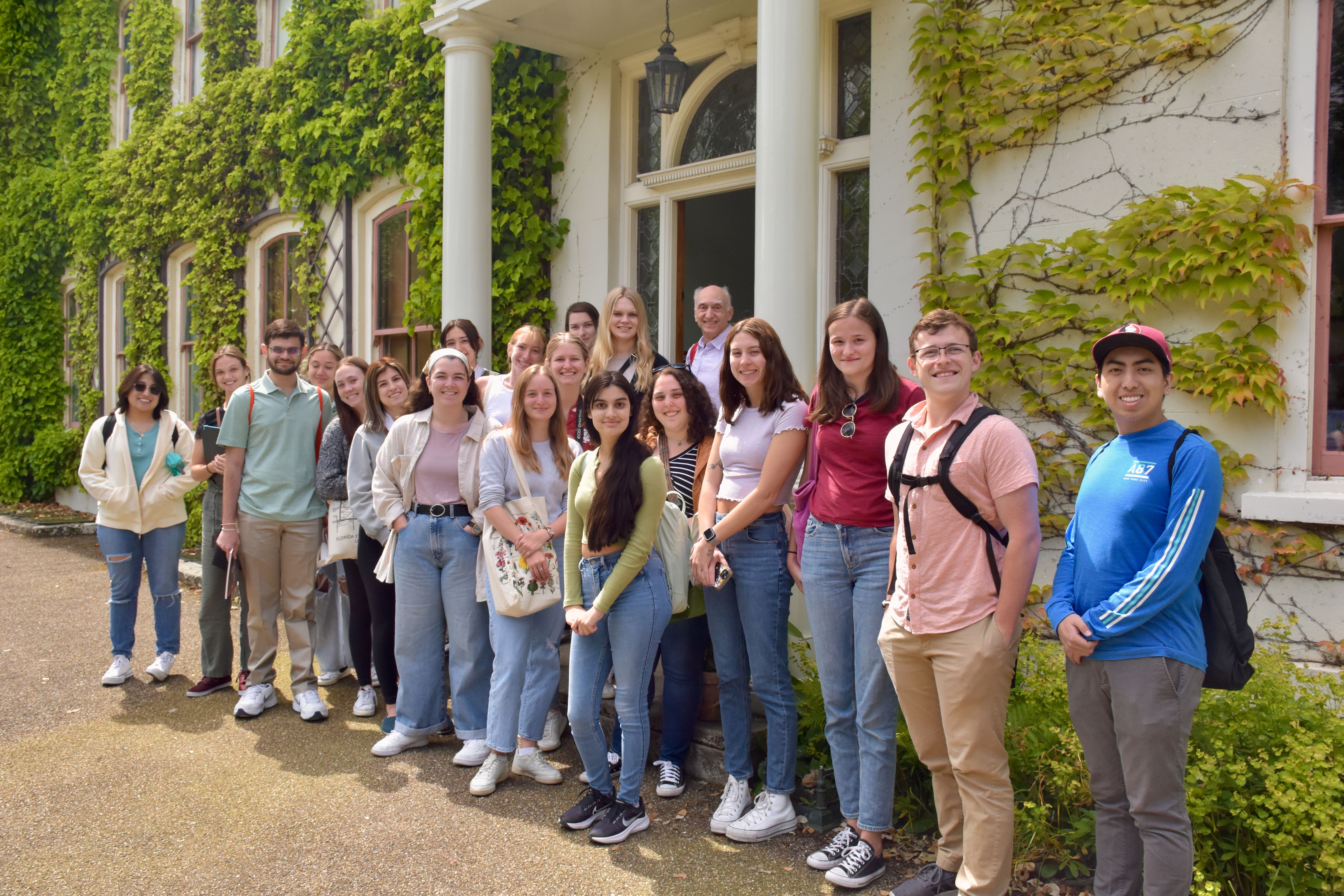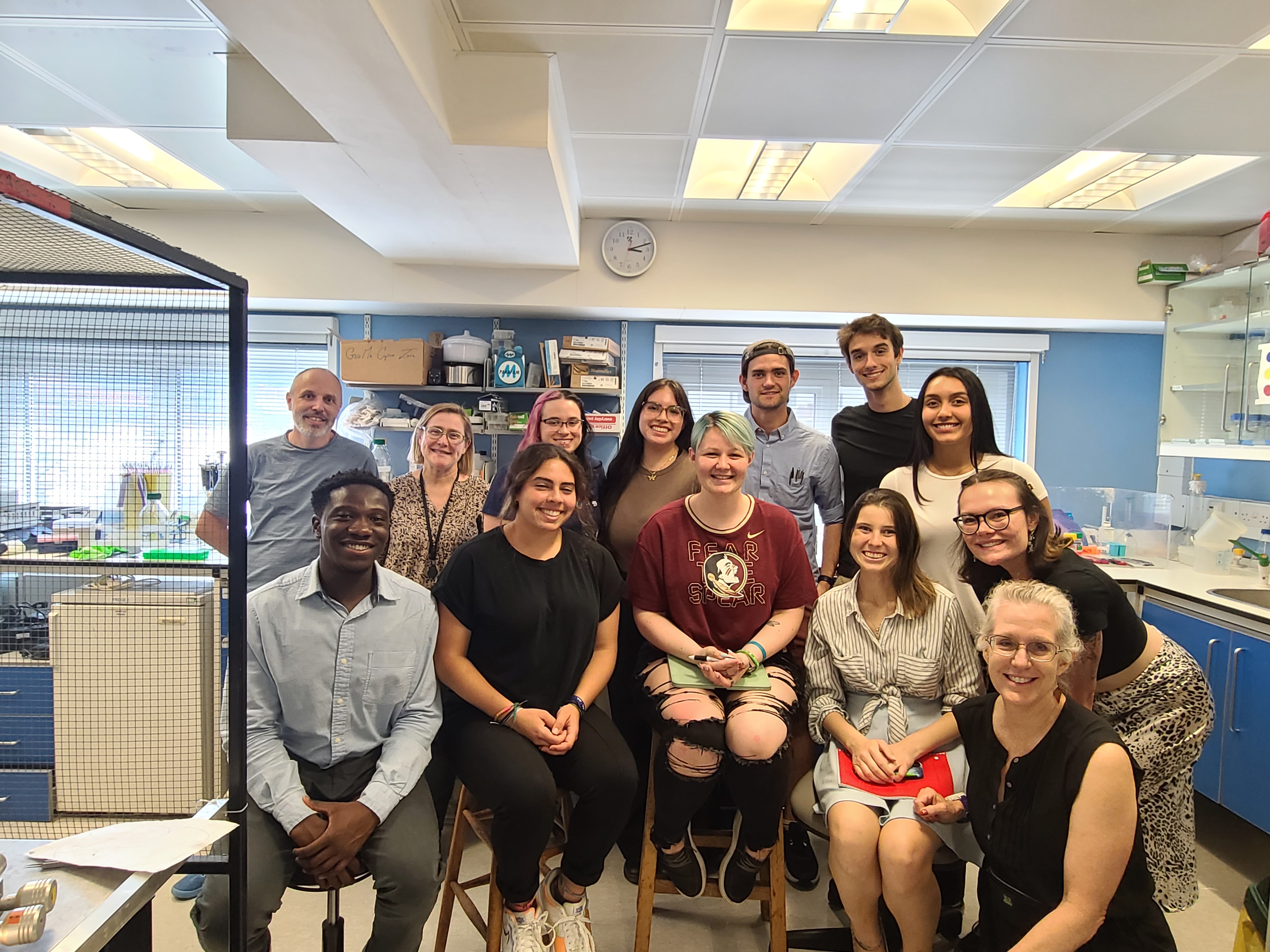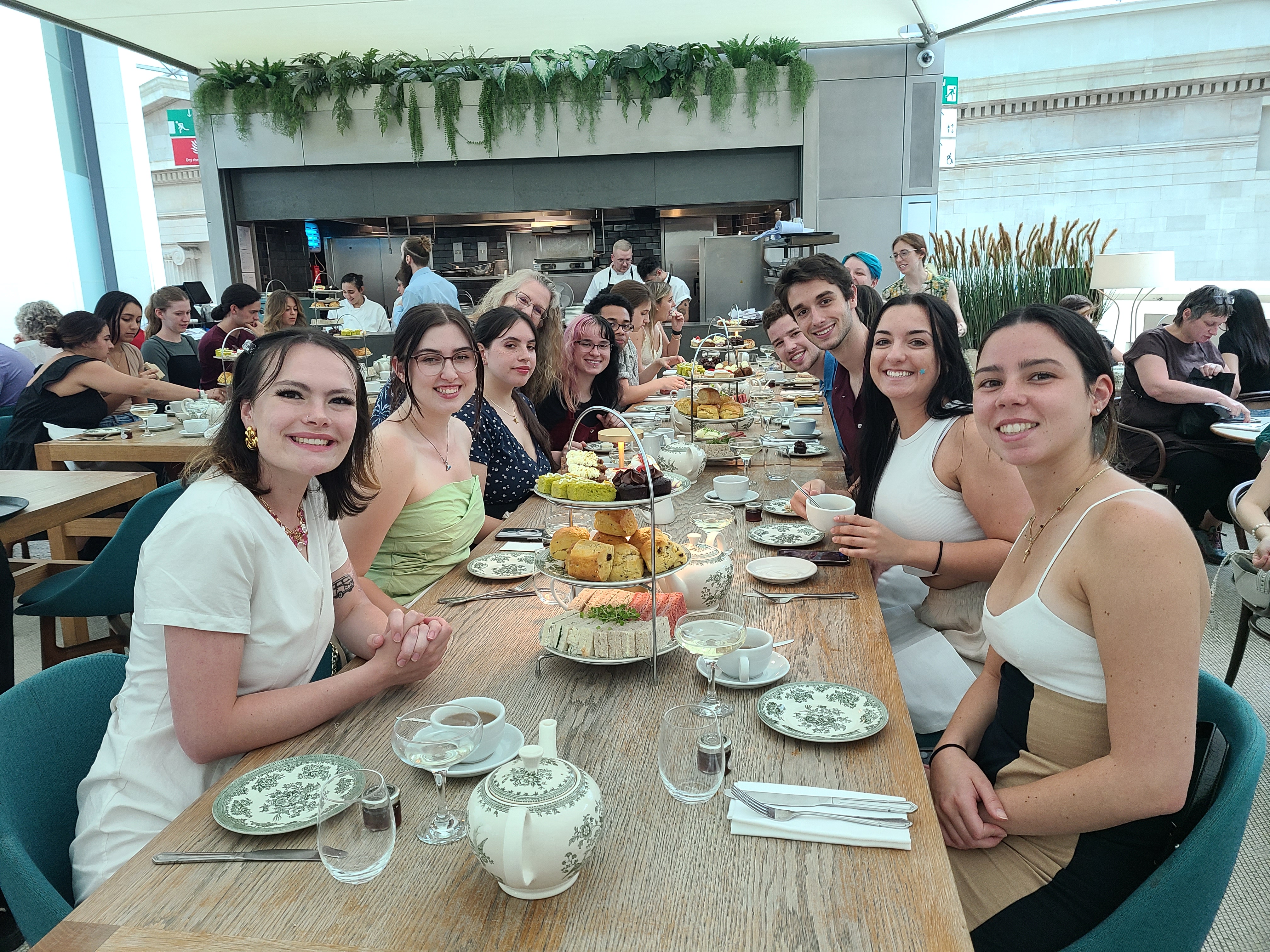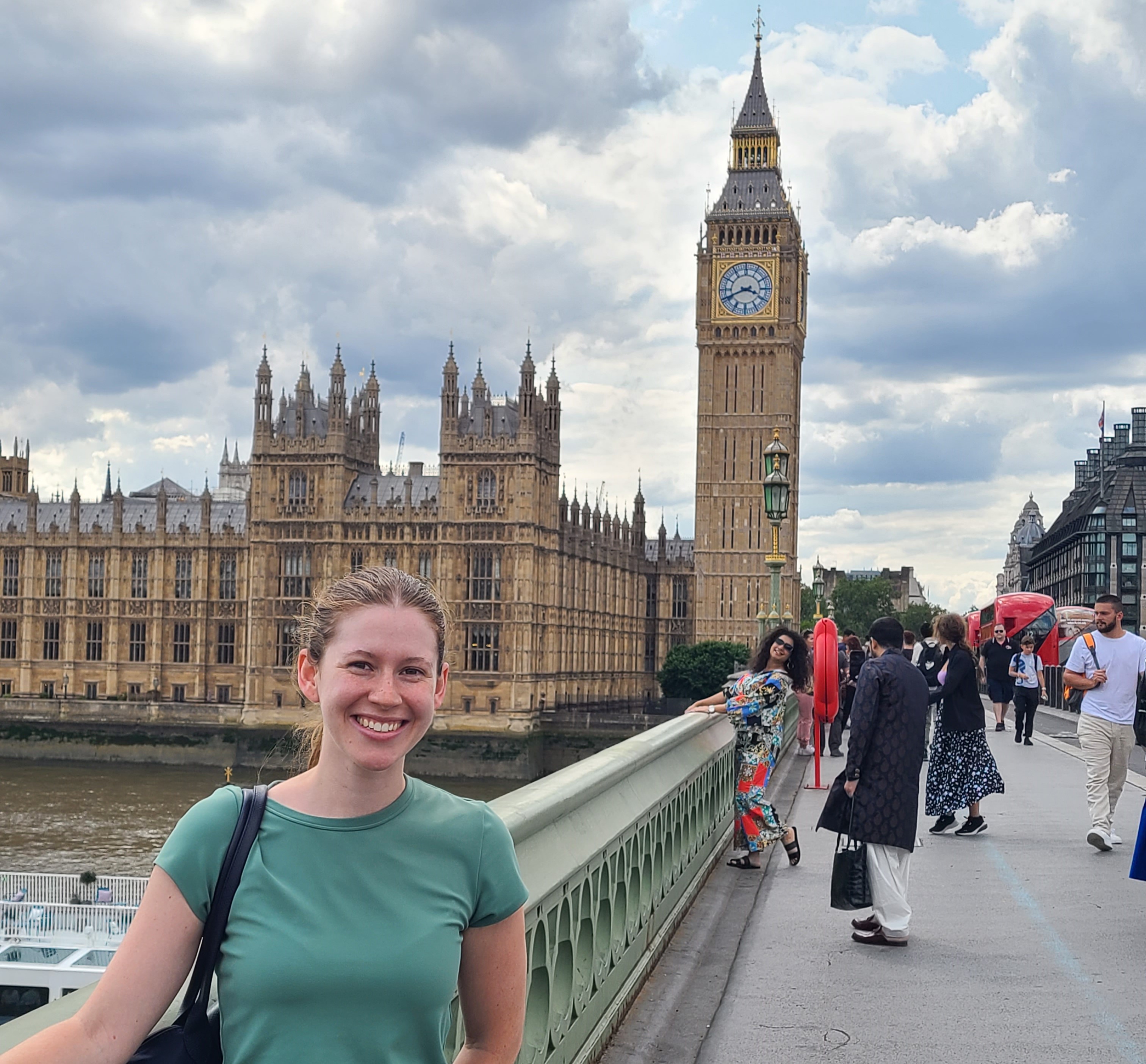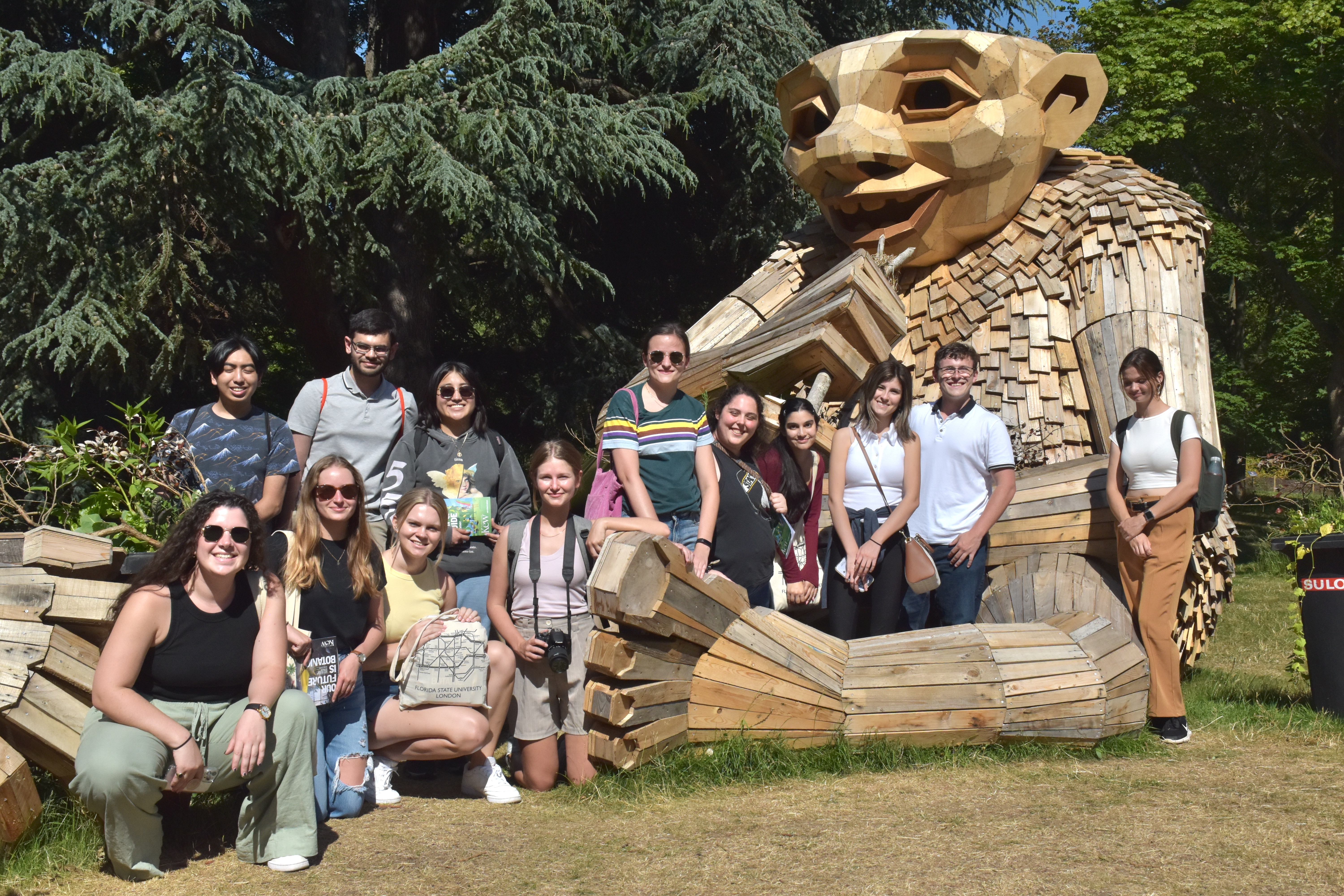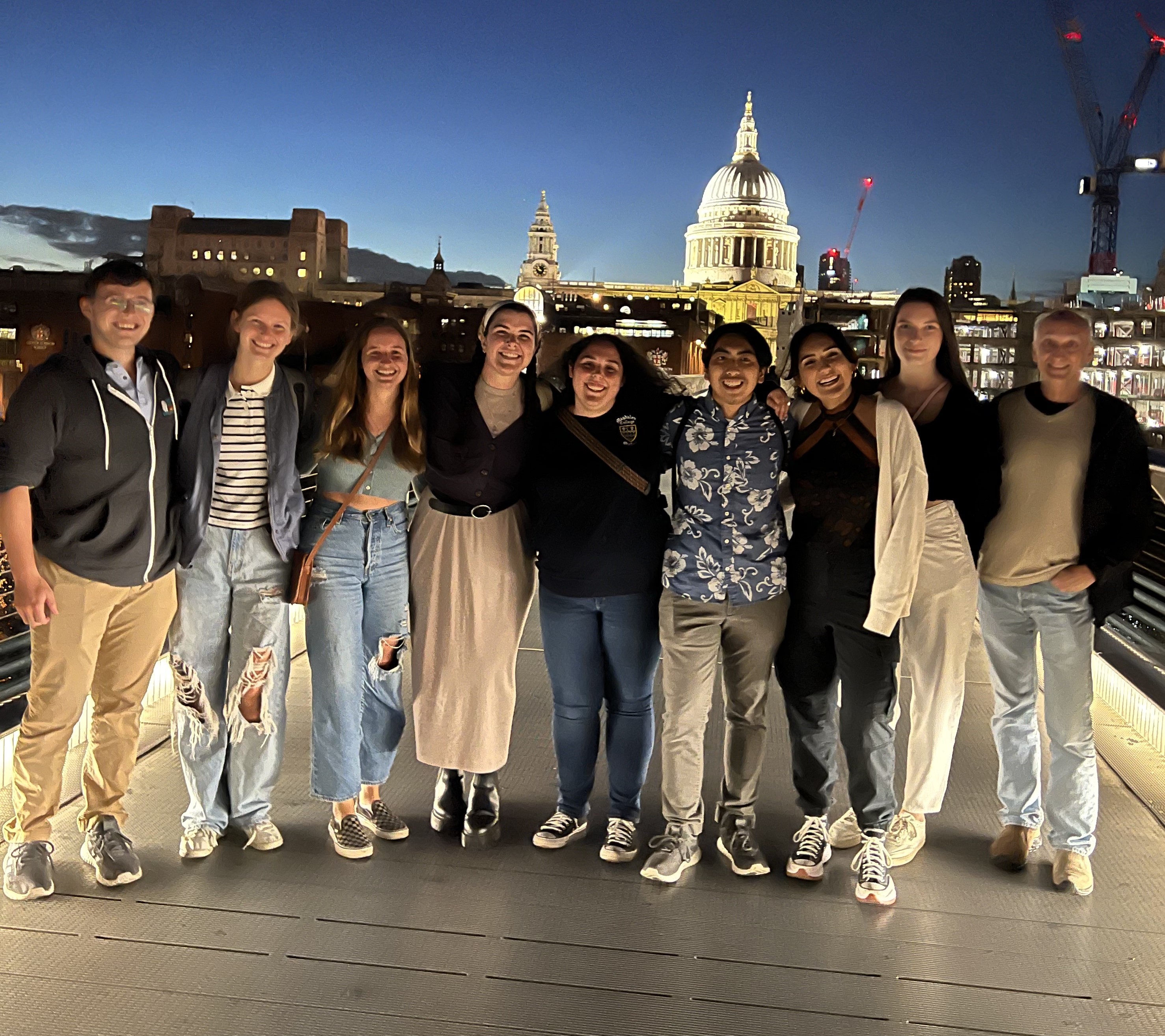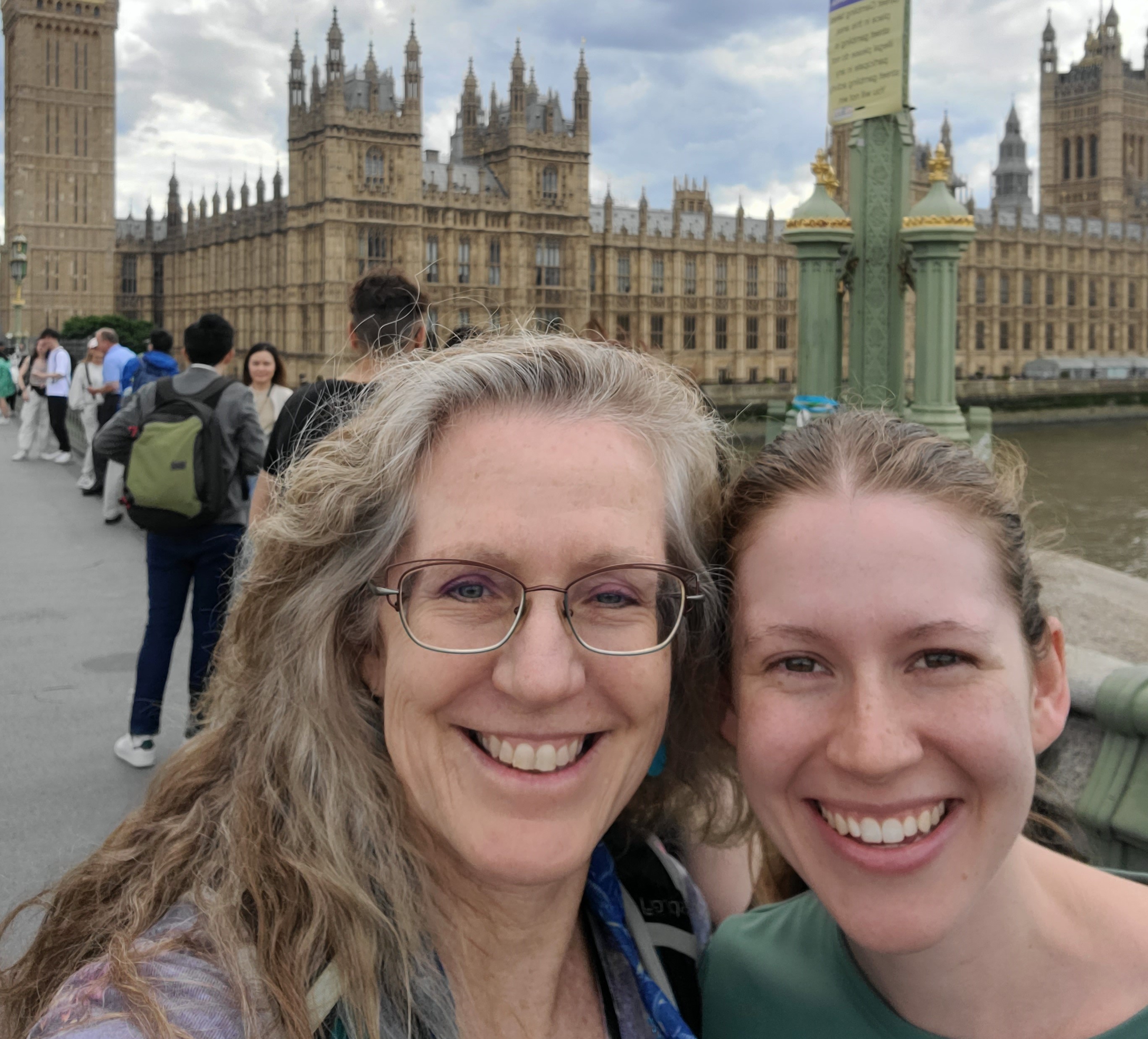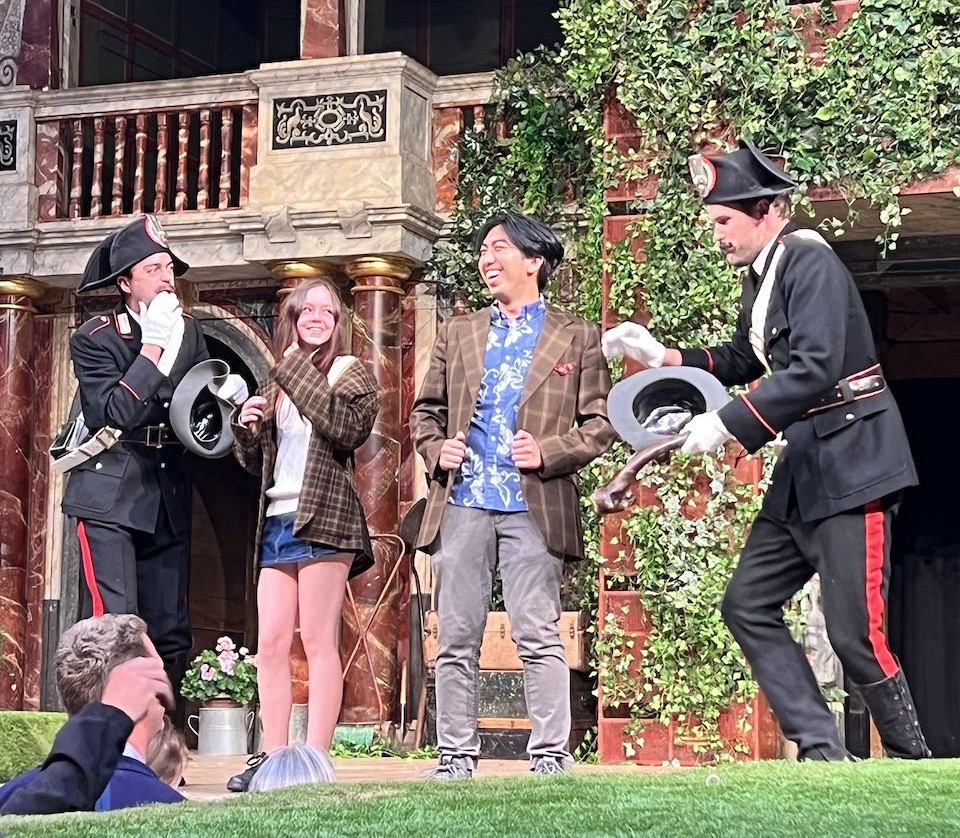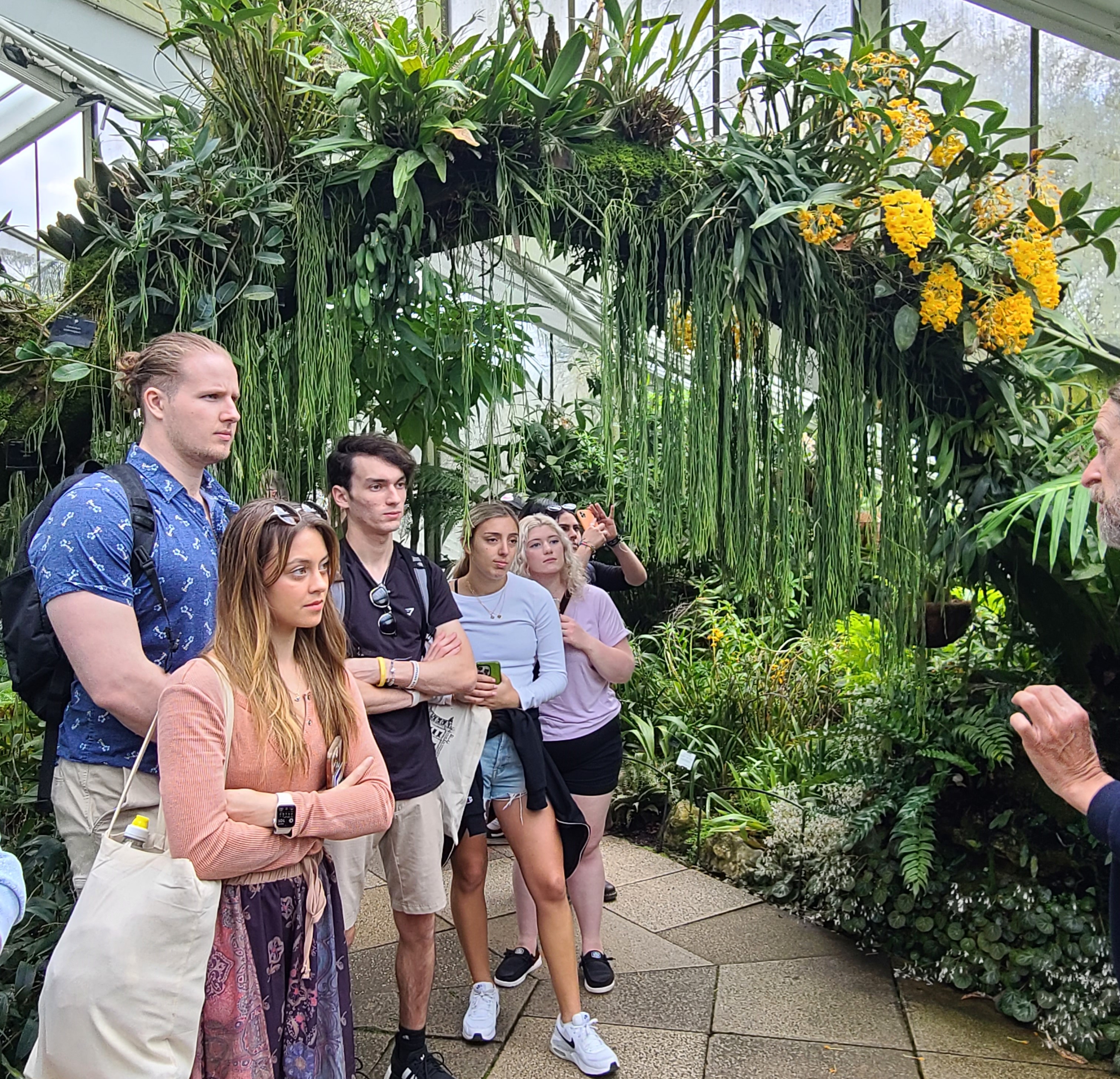Biology In London Program
Join us for the Informational Session on the 2025 Program on Friday, September 20, from 12:00-1:00 PM, in King 2057. Light lunch will be provided!
Welcome!
London, England, is a living, learning laboratory offering FSU students the opportunity of a lifetime to study biology. The Biology in London Program provides insights into historical context of many fields of study, hands-on experiences at the sites of some of the most important advances in biology, and specialized courses for majors in biological science that contribute toward progress in their major, as well as for students in related STEM departments. In addition to intimate classroom instruction, visits to iconic landmarks, such as Charles Darwin’s home, the drinking well that was the origin of the historic cholera epidemic that changed modern medicine, the Natural History Museum and more, the Program provides a highly dynamic learning experience by using London as a classroom. Two classes are offered sequentially each summer.
For more information, select the links above.
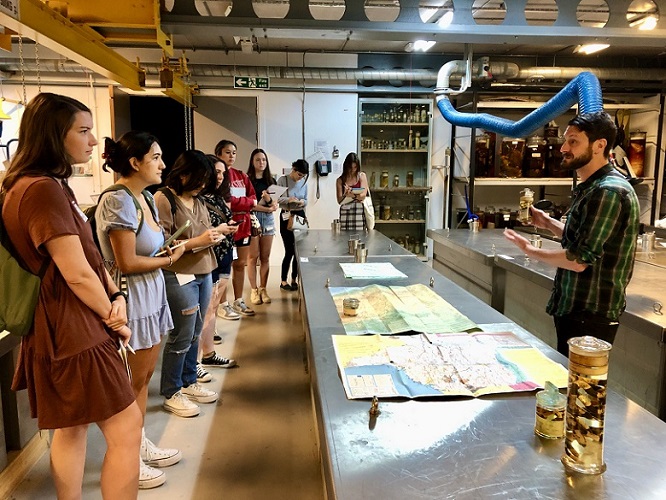
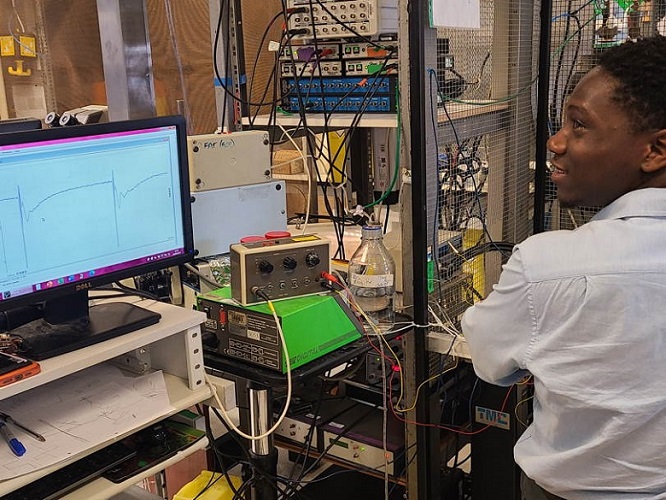
Plans for Summer 2025!
Classes offered (dates approximate):
- Biogeography in London (BSC 4933; June)
- Infectious Diseases in Society Throughout the Ages (BSC 4933; July)
Important Upcoming Dates (all 2024):
- September 20th: Biology in London information session, during FSU Family Weekend (12-1, in King Life Sciences Building 2057)
- October 9th: Student applications open at IP
- Mid-October: IP Fair on Landis Green
- December 31st: IP Scholarship applications due
- Important Dates
News!
Donate to the Biology in London Scholarship
Help students have access to this amazing opportunity:
Donate Now!
